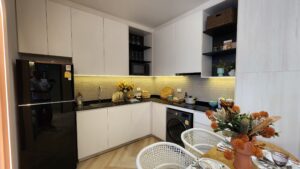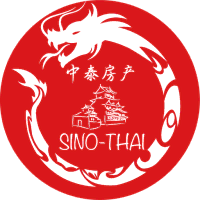I would like to consider a very important question that our clients often ask – what to do with real estate after purchase?
Obviously, you can live permanently yourself or sometimes come on vacation to your new apartment or villa, and the rest of the time lock it up. You just need to take into account the Thai hot and humid climate, so in your absence it is necessary to ensure ventilation and air conditioning of the room to prevent the formation of mold. But still, most people want to make a profit from the real estate they purchase – and rightly so!
What is the best way to rent out your apartment in Thailand?

The first method is if the developer, when selling real estate, offers guaranteed income programs or the so-called “rental pool”. With a guaranteed income program, as a rule, the developer gives 6-7% per annum of the purchase price of the property, the contract is concluded for 3-5 years and you will be limited in the period of stay in your own apartment – usually the developer allows the owner to live for two weeks a year, in low season. The “rental pool” program assumes that the developer or his management company will rent out your apartment and combine the profits with apartments of the same type as yours. The profit from the delivery will be divided between the owner and the developer in the ratio of 60/40% or 50/50%. It is believed that the “rental pool” rental program brings more profit to the owner than the guaranteed income program, and this is true, especially if well-known hotel brands Wyndham, Radisson, etc. are involved in management and rental. I repeat, when concluding a contract with a developer under one of the programs described above, you are limited in access to your property for 3-5 years, and the promised income may in fact be somewhat less, due to your expenses for paying taxes and other payments.
The second way to make a profit from purchased real estate is to rent it out through one of the private management companies, like ours. I will describe the working conditions using our company as an example. We take management of properties from owners and rent them out to vacationers, mostly for short periods. We divide the profit from the rental in a ratio of 70/30% – we transfer 70% to the owner, we take 30% for our services. After concluding a contract with the owner for the management of his property, we equip it with the missing household items necessary for the comfortable life and relaxation of our guests. The costs of this are borne by the property owner – we confirm all expenses with checks and receipts. Further, in the process of work, we ensure complete transparency – we create a general chat in the messenger, where owners can control who rented their housing, for how much and for what period, and even ask whether the tenants are satisfied with the quality of our services. In this chat we also send the rental agreement that we conclude with tenants, which specifies all the conditions: deposit amount, guests’ contact information, etc.

I would like to emphasize that only our company provides such transparency of work – you can easily verify this by calling and talking with other management companies on the island. Let’s face it, many management companies are guilty of double-entry bookkeeping and are not averse to inflating non-existent expenses, which they are happy to pass on to property owners.
Next, we transfer rental income to the Thai or Russian account of the property owner. A few words about taxes on profits from renting out real estate. It is better to pay income tax to avoid problems with the Thai tax service. For residents, the tax will be 5%, for non-residents – 15% of the profit received. If a management company is engaged in renting for you, then it usually pays this tax for you, deducting it from the money transferred to the owner of the property. Obtaining a resident certificate in Thailand is not difficult or expensive, but this is a separate topic. A resident can receive income from the rental of real estate into his Thai bank account, and a non-resident can receive this income into an account outside Thailand. In the end, I would like to explain why we charge 30% of rental income. We are engaged in advertising on specialized platforms and in social networks, correspondence with potential tenants, checking in and out of guests at any time of the day, organizing cleaning of the property (we charge the cost of cleaning from the tenants). We also handle minor repairs, cleaning of air conditioners (cleaning costs are covered by the owner) and other requests from residents, for example, guests often forget their keys in the apartment and we have to come and open the door. And this is not the entire list of actions taken to work with our clients’ real estate.
We hope that you now understand what to do with real estate after purchasing it to obtain maximum financial benefits.
 Sino Thai
Sino Thai